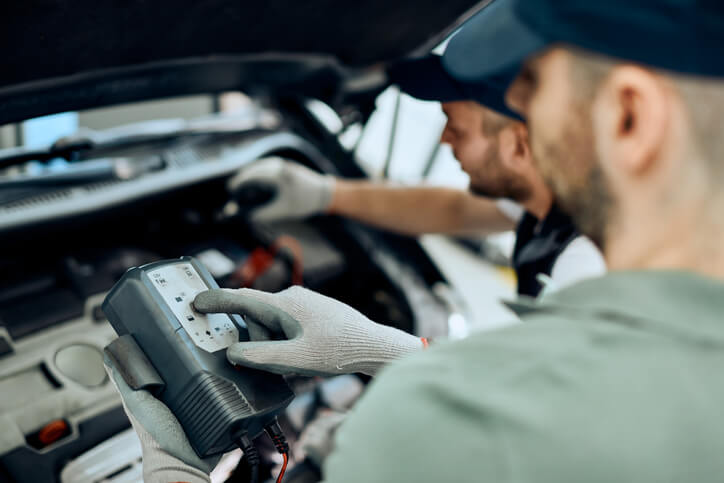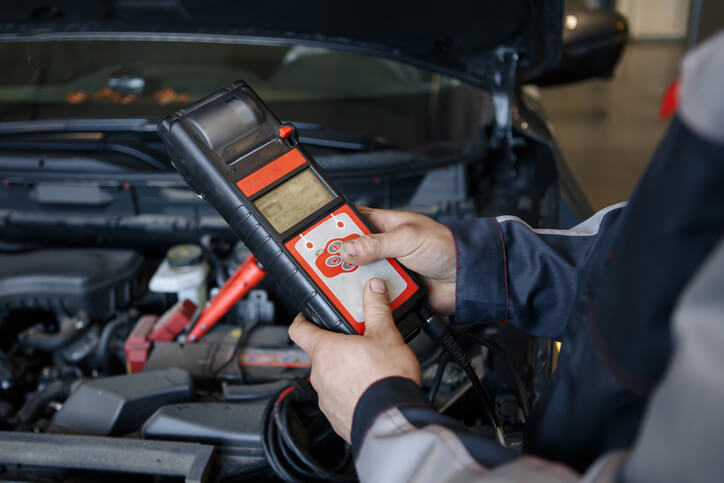Battery Reset Procedures: The New Normal for Auto Mechanic Training Repairs
In modern vehicles, disconnecting a battery often means more than just losing stored voltage. It frequently wipes essential settings and even puts various onboard systems into a “safe mode.” Mastering battery reset procedures has become a critical skill for any auto mechanic training program. Gone are the days when a simple connection was all it took; today’s technicians need to know how to bring vehicles back online safely and completely.
If you’re enrolled in an auto mechanic school like ATC Cambridge, comprehending these steps isn’t optional; it’s foundational. This blog post highlights modern battery reset procedures for auto mechanic training students.
Why Battery Resets Matter in Modern Vehicles
Automakers have integrated battery-saving features and “smart” electronic systems throughout the vehicle. When a battery is disconnected:
- Engine and transmission settings may be lost.
- Emission controls might default to limp mode.
- Safety systems like airbags and stability control can be disrupted.
- Infotainment and convenience modules lose their memory: think seat positions, radio presets, and more.
Failing to follow correct reset procedures can cause drivability issues, annoying warning lights, or even deeper system faults. That’s why ATC Cambridge emphasizes hands-on training, exposing students to post-battery reset diagnostics and recalibration.

The Core Steps in Battery Reset Procedures
During your auto mechanic training, you’ll learn a systematic approach to ensure vehicles come back online properly.
- Load vehicle-specific tech info: Every manufacturer has unique procedures. Always consult the repair manual or OEM software before starting.
- Use a scan tool to store data: After reconnecting the battery, capturing codes and performing relearn procedures helps restore proper function.
- Relearn idle and adapt systems: Whether you’re driving or idling, this step helps the engine and transmission relearn optimal operating parameters.
- Recalibrate sensors: Throttle, steering angle, cam/crank position, and others may need to be reset.
- Clear all trouble codes: After relearn cycles, clear diagnostic trouble codes and ensure no warning lights remain.
These steps are fundamental in auto mechanic training to prevent follow‑up issues that frustrate customers and employers.
What Advanced Technicians Understand
Graduates with strong automotive training know that:
- Ignoring battery reset protocols can lead to comebacks. Vehicles returned may come with new drivability or warning light issues.
- Scan tools with OEM-level capabilities that support specific sequences (like throttle relearn or steering angle calibration) are essential.
- Communicating this process clearly to vehicle owners, explaining why the reset and relearn steps are needed, builds trust.
ATC Cambridge ensures students get face time in structured lessons and real shop environments to hone these habits.

Build Confidence With Modern Diagnostic Skills
If you’re drawn to complex repairs and want to stay ahead of industry trends, mastering battery reset procedures is a solid way forward. These skills elevate you from a generalist to a technician who understands systems, voltages, and module interactions, the type of professional employers are increasingly looking for.
ATC Cambridge’s auto mechanic school curriculum has integrated hands-on training with the latest diagnostic tools, scan software, and battery reset strategies. Recruiters consistently note that our alumni enter the workforce ready to handle modern challenges, from EV battery care to advanced drivability diagnostics.
Take the Next Step in Your Career With Advanced Auto Mechanic Training
Unsure where to begin? Start with automotive training that emphasizes current vehicle systems, including battery reset sequences, module communications, and relearn protocols.
If you’re considering a future in automotive diagnostics and repair, check out ATC Cambridge’s programs today. Get the skills you need to be both precise and proactive, with confidence that you’re trained for vehicles on the cutting edge of technology.
Are you looking for comprehensive automotive training?
Contact ATC Cambridge for more information.


